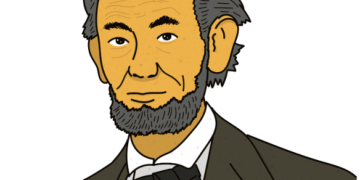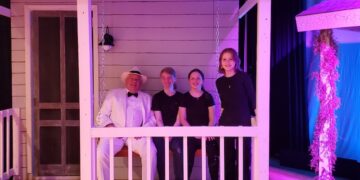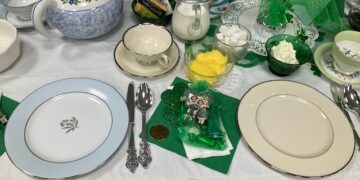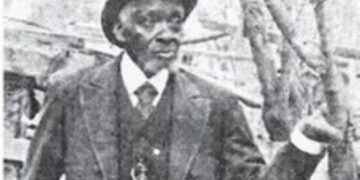Jesmyn Ward’s life has changed dramatically since I first introduced her in 2019 as one of the Southern writers who began their careers after 2000. Then, the author of the prize-winning novels, Salvage the Bones (2011), and Sing, Unburied Sing (2017), she had won the prestigious MacArthur “genius grant” and had just begun teaching at Tulane University in New Orleans where she still teaches creative writing.
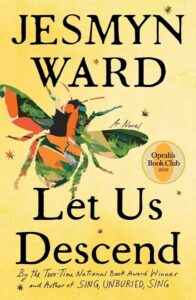
Ward has said that she was inspired to write Let Us Descend in 2015 while driving from DeLisle to Tulane to teach her classes. On a local radio station, she heard a story about the history of slavery in New Orleans: “I knew none of that—that New Orleans was the center of the domestic slave trade in the early 1800s, or that thousands of enslaved people were sold south to New Orleans and on to plantations in Mississippi and Louisiana.”
Let Us Descend covers about ten years in the life Annis, a third-generation slave. Her mother named her Arese, but that name “is only for my mama,” an indication of the closeness of their relationship. In the novel, Ward produces an intimate study of females held in servitude in the South before the Civil War. Her central theme concerns family—how these women were still able to establish families under a system meant to reduce all slaves to mere property. Ward also deals with the loss of African identity under the horrendous circumstance of slavery. She shows the desire both to hold on to a heroic past and to spiritual beliefs that have nothing to do with Christianity. At the same time, Ward depicts Annis’s growing interest in Western culture despite being denied literacy. The title of the novel is a quotation from Dante’s Inferno which Annis overhears a tutor reading to her first owner’s daughters. As Dante’s hero descends into Christian hell, Annis descends into the hell of slavery.
Let Us Descend opens on a rice plantation somewhere in the Carolinas where Annis is growing up, the product of rape: her mother was assaulted by her white owner. To the age of fourteen, Annis has had the exclusive benefit of her mother’s love and attention while both work as house servants. In the first scene of the novel, Annis’s mother is teaching her how to fight, the legacy of her grandmother Asa, who had been a “woman warrior” in Africa. A more tangible legacy is an ivory knife that Annis hides in her hair.
As the young girl matures, her owner begins to lust after her. To gain access, he sells Annis’s mother to the “Georgia Man,” a dealer who will take her South to work on a sugar cane plantation in. Annis deeply laments that loss: “My longing for my mother spreads over in a great fishing net and tightens.” To offset her grief, she begins to create an ultimate reality peopled by spirits, one whom she names Asa after her dead grandmother. When Annis resists the owner’s advances, he soon sells her to the “Georgia Man.”
Ward researched the history of mistreatment of slaves sent to the lower South, vividly detailing the horrors they encounter as, chained together, they struggle into deeper slavery. Strong and resourceful, Annis survives the march to end up in a slave market in New Orleans; her beauty designates her as a possible placage lover, a kept concubine to a white man—a common practice in Louisiana; however, the evil female owner of a sugar cane plantation outside the city buys Annis. Ward depicts both of Annis’s owners in negative, almost stereotypical terms, possessive and brutal.
Annis’s life on the plantation is hard, though she does form a surrogate family with other women. Their stingy owner gives them almost no food and forces them to work both in the plantation house and in the cane fields. Annis twice suffers her owner’s most ghastly punishment, imprisonment in a torture hole in the back yard. Suffering physically, Annis escapes psychologically through interaction with the spiritual beings she has created; she particularly evokes Asa, the spirit with her grandmother’s name.
Reviewing the novel in The Washington Post, Ron Charles suggests that “Ward uses these otherworldly voices to imagine a kind of fluid theology of early Black Americans at a time when their lives were uncontaminated with Christianity and still trailing the clouds of their African ancestors.” Charles’s idea is valid but Ward’s shifts between reality and spirit in the novel are a bit disconcerting as is her handling of language—her constant shift between dialect and formal American English.
At the end, realistically, Ward offers no happy endings– only tentative respite for Annis.







